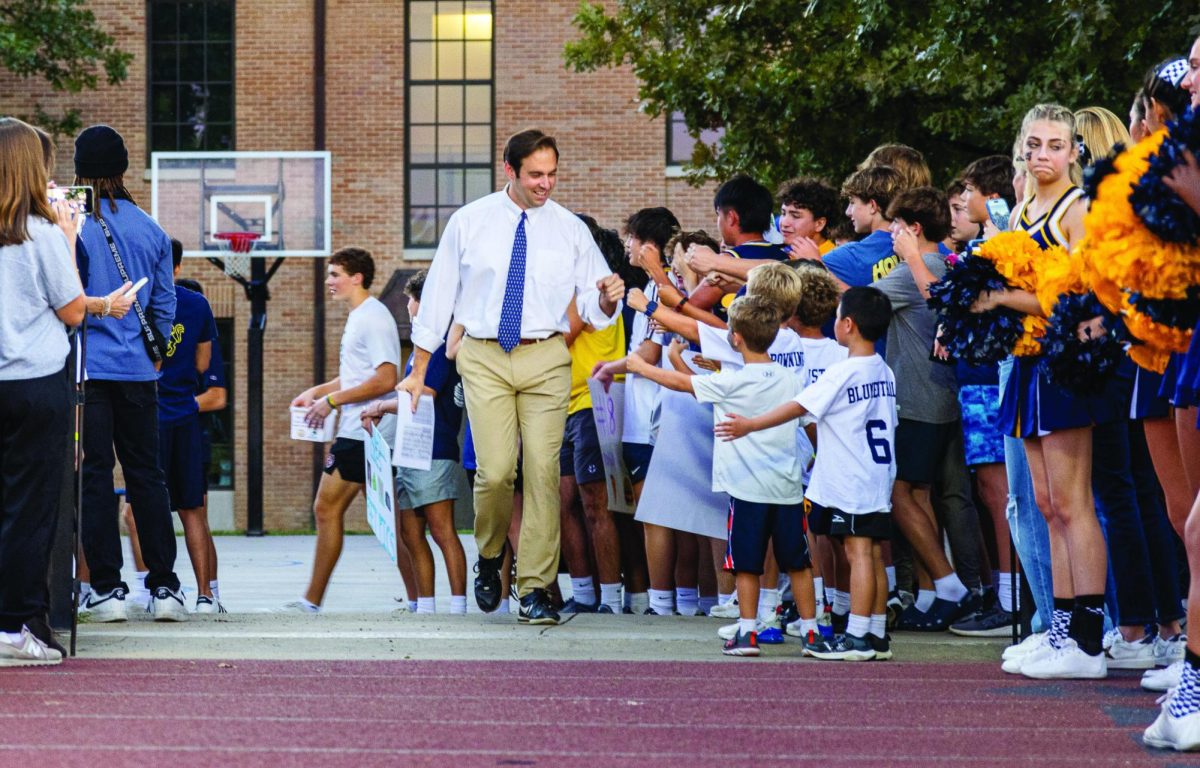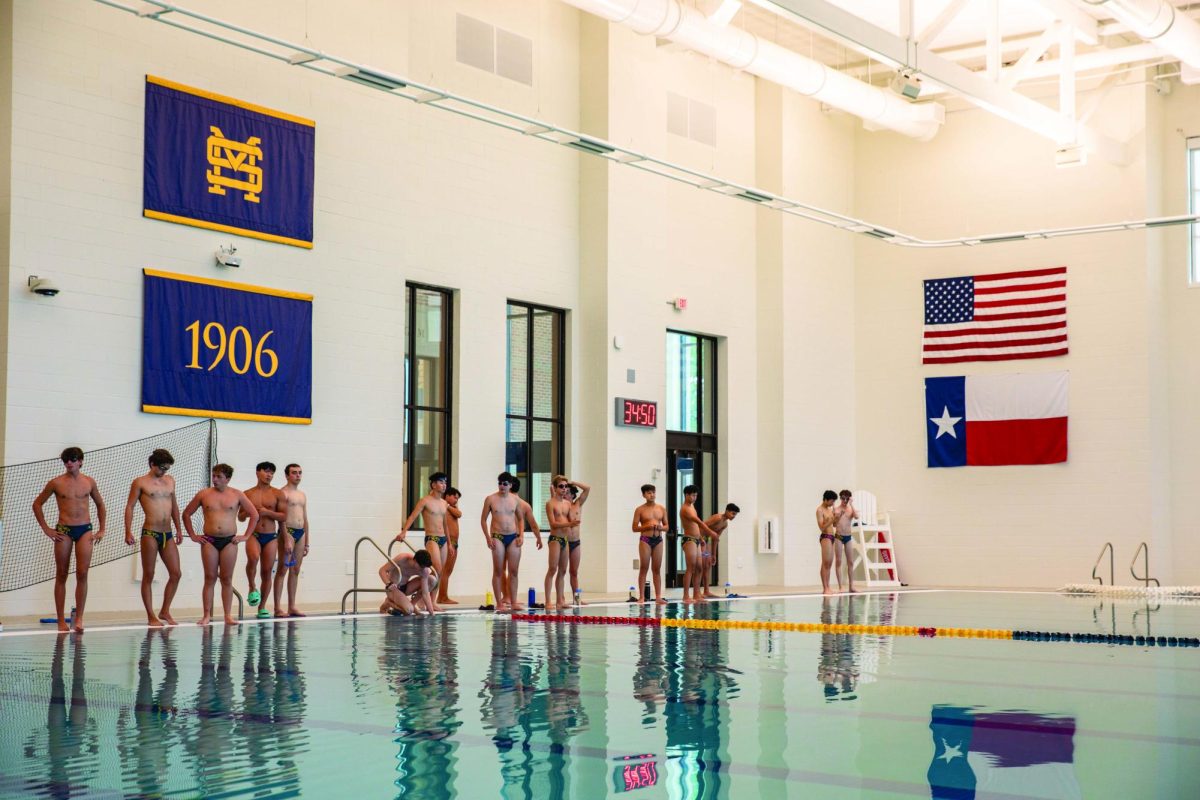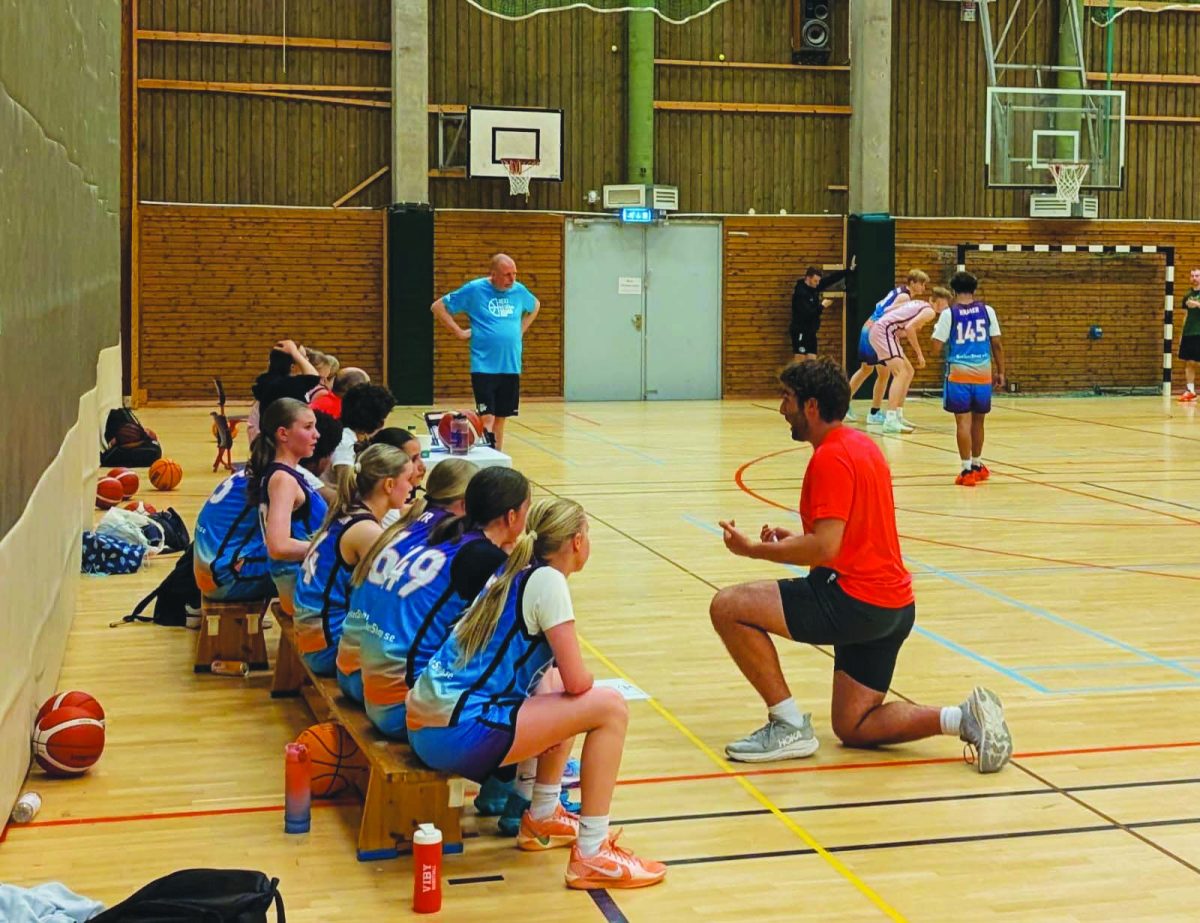It’s easy to get swept up in the excitement and anticipation of a sports game.
Sidelines full of joy and struggle.
The bright lights, the fans, the wealth of athletic talent on display.
But when emotions become overwhelming, who’s supposed to keep things calm?
Who keeps a team focused on their goal?
According to head football coach Harry Flaherty, that burden largely falls on him and his coaching staff.
“It’s difficult during the course of a competition to remain totally calm at all times, but I feel that my purpose during the game is to continuously direct the players’ attention to what they need to do next in the game,” Flaherty said.
Flaherty, who is in his third season as head coach, emphasizes the importance of keeping a level head on the sidelines and focusing on what comes next.
“There’ll be plenty of time to review when we’re watching film the next day,” Flaherty said, “But during the course of the game, there can be an emotional roller coaster that takes place – and I view the role of a coach as one of steadying the ship and focusing on the next play.”
The role of a coach, as Flaherty refers to it, has undergone significant changes over the past decades in sports. Aside from the typical developmental and leadership pieces of the job, a coach nowadays must be able to tap into a player’s mental state, helping them reach their fullest potential.
“Before games, in the locker room, Coach reminds us of how hard we have worked and how far we have come at that point,” starting quarterback and senior Jimmy Francis said. “He makes sure we know that we can and should play at a high level and that he’s proud of the team.”
Francis, who took over the mantle of starting quarterback this year, believes that his best is brought out by both lofty goals and a strong base of support when he plays, but places more stock in the latter.
“Some degree of tough love fueled by high expectations is beneficial [in game],” Francis said. “But, at the same time, lots of positive motivation and reminders that my coach trusts and believes in my abilities goes a long way for me —with words and actions.”
The role of a coach, however, is also a balancing act. The line between calming and ineffective, or between inspirational and overbearing, is sometimes worn down by the heat of a competition, requiring a coach to be acutely aware of the different aspects of each game.
“I think it all depends on the circumstances,” Flaherty said. “No team is exactly the same every week. And no situation is exactly the same every week. So, there are times where our guys need encouragement, and there are times where they need a little motivation to be ready to play their best.”
As coaches try to manage a game, they often develop their own methods and attitudes to project onto their teams.
Flaherty, for example, believes that a short-term approach is most effective when moving his players towards success.
“We talk to our players about treating each play like it’s the only play that matters,” Flaherty said. “I think that’s what really good sports teams do. They’re not surprised when they have success. They’re not overwhelmed.”
But, in competition, the internal factors that affect a team are only one part of the picture. The external factors —the crowd’s raucous noise and chants, the words and actions of the competition and their performance also play a part in a team’s mentality.
A coach’s demeanor can help determine that response.
“We’re trying to block out all of the noise, the successes and the failures that are happening, to figure out what our plan needs to be for the next series or the next play,” said Flaherty. “You also try to block out all of the narratives about who the other team is, how we’re supposed to fare against that team or whether or not we anticipate success against them.”
Coaches also need to balance their leadership between cool confidence and brash cockiness. However, Flaherty points to a team’s practice and play as the best measureof their legitimacy.
“When adversity strikes, people tend to revert to their level of training,” Flaherty said. “When the excitement starts to slip, you’re going to revert to whatever your level of preparation is. So people put a lot of emphasis on whether or not they’re confident or cocky, but in the end, once you take your first hit, those other things kind of start falling away.”








